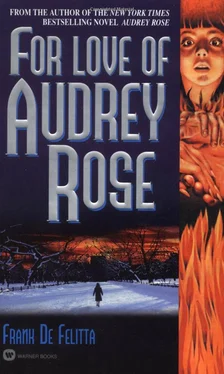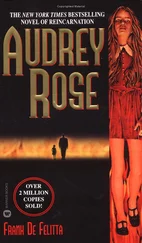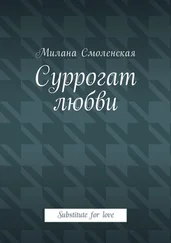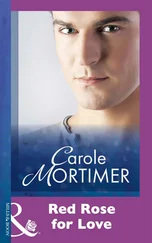Janice briefly noted the answer with a pencil. It was a peculiar sensation, asking the questions. Once she would have needed to know the answers. Now she was asking for Bill, and she tried to remain detached. Yet something deep within her listened hard to every nuance of the disciple’s words.
“But if a person dies, the soul is on its own—” She faltered and began again. “If there is a time — I mean, space— between one life and the next—”
“An interval.”
“Yes. An interval. Is that experienced as an infinity of time? Or measured in weeks, months, and years? Or is there no sensation of time at all?”
“It is not measured in weeks, months, and years, because there is no ego to measure. It is experienced as infinite: neither infinitely long nor infinitely short, simply an unbounded expression of the void; only temporal, not spatial.”
Absolutely lost, Janice nevertheless dutifully copied down the answer.
“But if there is a return?”
“There is always a return,” he said, smiling gently. “Unless the soul has reached the final extinguishing: Nirvana. And that happens very rarely.”
“Yes, when there is a return to life”—the words echoed weirdly in Janice’s ears, a kind of thrill of blasphemy to be saying them, horrifying, yet suddenly obsessive—“can you reckon the return in weeks, months, and years?”
“I’m afraid I don’t understand.”
“If a person dies on December the tenth, can you predict when the soul returns?”
The boy paused. His hand patted down on his head, where the blond hair was thinning. He frowned. He seemed upset by Janice’s question.
“I don’t know,” he said.
Surprised, Janice did not know how to respond. For a few seconds she thought he was going to walk abruptly away, his feelings hurt.
“You’d have to ask the Master,” he said brusquely.
“When will he be free?”
“It varies. Usually about midafternoon.”
“I see. But I have to go back to work.”
“If you leave me your name, I’ll present your question to him. If you come back tomorrow, I’ll try to give you his answer.”
“That’s very kind of you.”
She wrote down the question, along with several more from Bill. She even added one of her own. It was a fantasy she’d had from her own Catholic upbringing: Do the dead perceive, or even, in some way, “watch” events on earth? Janice felt silly writing it down; a child’s question, and yet she was curious what the Temple taught on the subject. She promised to come back tomorrow, midafternoon.
When she returned to the studio, there were three telephone slips. Bill had called three times.
“You didn’t get much out of them, did you?” he complained when she called him back.
“The Master was in meditation.”
“Listen. Go back there and speak directly with the old man. Don’t mess around with these small fry.”
“He seemed a perfectly sweet and reasonable young man—”
“Was he American or Indian?”
“American.”
“Forget him. He’s some wipe-out from too much dope. Get hold of the horse’s mouth.”
“All right, Bill,” she sighed.
Bill hung up, barely murmuring good-bye.
The next day, Janice grabbed a lunch at her work desk, and when 3:30 came around, slipped out to the Temple. This time the Master was sitting cross-legged among the flowers at the front of the room. He was evidently not meditating, because his eyes followed her as she hesitantly walked into the room, and he smiled politely.
He stood up and slowly, gracefully, pattered in his sandals to where she stood. With his white hair glistening, his skin looked darker by comparison, making his blue gray eyes almost transparent in contrast. He wore an orange robe draped loosely over his shoulder and tucked into itself at the waist.
“You are Mrs. Templeton?” he asked in a silvery-smooth voice.
“Yes. I was here yesterday.”
“So I was told. I’m sorry I was not available to answer your questions.”
“It was my own fault. I did not know your schedule.”
As he escorted her from the main room, she sensed the obedient eyes of the five or six disciples following them protectively, intensely. Alone with him in the cool of the garden, where, even as she watched, dead leaves fell from stunted trees by a leaning stone wall, she suddenly grew afraid of him. It was a vague similarity to the fear she had always felt in the presence of Hoover, even when Hoover was surrounded by cops and lawyers.
“It is more conducive to explanation in the garden,” he said, neither eager to push his doctrine, nor yet indifferent to her need to know. “You know that many branches of one religion can differ on some points, so what I can explain to you is only our own interpretation.”
“I understand that, your…”
“My name is Sri Parutha,” he said, sensing her awkwardness. “I am called the Master. It is not that I am a master over them”—gesturing toward the disciples inside—“but rather that I have mastered myself.”
Janice visibly relaxed in the face of his modesty. He reminded her of an uncle she had known as a child, an uncle who had brought her tales of far-off Paris in a smooth, inwardly vibrant voice.
“The question as to prediction of the return is a division point among a number of sects within our philosophy. I myself maintain that there is a general limitation — let us say, two generations — within which the soul returns. Others maintain that the instant of death produces an instant of life.”
Janice jotted down the answer. The Master answered several more, and amplified his disciple’s answers of the previous day.
“And as to whether the dead observe, in some way, life on earth, I must say I am not in sympathy with this idea. It is natural for the bereaved to feel it is so, and no harm is done by imagining it, but the condition of the soul after death is so vastly different from earthly existence that to speak of ‘observation,’ implying eyes and ears, and an independent mind, would be to fabricate a whole mythology.”
“I see,” Janice said, feeling, much to her own surprise, a sense of disappointment, as though the child within her had been deceived by the priests and nuns of her old parochial school.
The Master smiled softly, neither with mirth nor yet with an irony.
“You have come out of a sense of grief,” he observed.
“Yes, how did you know?”
“One can tell after many years of observing human beings. Was it a child?”
“It was.”
“And if memory does not fail me, you were here once before. Almost a year ago.”
Janice blushed and said nothing. The Master himself seemed deeply moved by the memory. He was silent. For a long time the only sound was the rustle of dead leaves in the trees of the garden.
“But you have never come back since then,” the Master said.
“I found it too painful.”
He nodded sympathetically. “I am not offended. But I was told that now it is your husband who has become interested.”
She grew silent. Bill’s obsession seemed to have an unhealthy quality, nothing like the Master’s calm recitation of doctrine.
“It’s been very sudden,” she confessed.
“Very well. We are pleased to help in any way.”
“Thank you. You’ve been most kind.”
The Master wished to chat on about the garden for a few moments. He seemed to find a delight and a tranquility in observing the small changes, day by day, as the garden prepared for the hard, cruel winter.
“One does not fear death,” he observed, “if one knows that life returns.”
Janice smiled and let him accompany her to the door.
“Do I — that is, can I make a contribution?” she asked awkwardly.
Читать дальше












